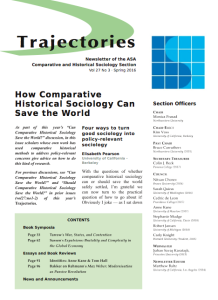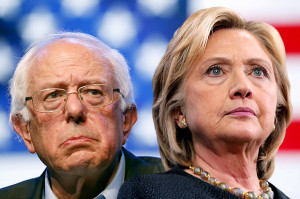Republicans opposed almost every policy initiative of the Obama Administration, forcing President Obama to rely on close to unanimous support from Congressional Democrats in his first two years, and since then on using his executive powers to advance his agenda. Journalists have shown that the Republicans’ Senate majority has confirmed fewer Obama judicial nominees in 2015-16 than Democrats did for President Bush in 2007-08. Technical fixes to the Affordable Care Act, of the sort Congresses routinely enacted for legislation, major and minor, passed during previous administrations, Republican and Democratic, have been blocked, creating confusion and hardship for those who depend on Obamacare for their insurance. Why such steadfast Republican opposition? Continue reading “Was Republican Opposition to Obama Racism? The Coming Natural Experiment”
Marianne Musulmane: Burkini-Gate and French National Identity
 Meghan Tinsley
Meghan Tinsley
Boston University
Among the most viral images of the summer was a beach scene on the French Riviera. In the photo, an unknown woman sits on the sand, surrounded by bikini-clad fellow sunbathers. At least four armed municipal policemen stand over her, watching as she removes a turquoise tunic. This incident and its aftermath marked the culmination of “Burkini-Gate”, which began on July 26th, when the mayor of Cannes instituted the nation’s first burkini ban and quickly grew to encompass nearly thirty French towns. It ended, for the time being, one month later, when the Council of State, the nation’s highest administrative court, overturned a Villeneuve-Loubet ordinance banning the burkini and set the stage for a reversal of the policy elsewhere.
Continue reading “Marianne Musulmane: Burkini-Gate and French National Identity”
Policy and Sociology in Context (Part 2)

 Linda Gusia
Linda Gusia
University of Prishtina
Michael Kennedy
Brown University
In part 1 of this essay, we discussed the varieties of policy work and sociology shaping previous debates about how comparative, historical and ethnographic sociology can engage policy work, as well as how that debate looks different in transition culture. In this part, we return to those debates to mark another layer of difference, but also to consider how it might be transformed by focusing our sociology and policy work on justice. Continue reading “Policy and Sociology in Context (Part 2)”
Policy and Sociology in Context (Part 1)

 Linda Gusia
Linda Gusia
University of Prishtina
Michael Kennedy
Brown University
We might clarify recent debates in these pages about the relationship between comparative historical sociology and policy if we were to consider both the variety of sociologies and policy engagements discussed as well as the contexts of their address. In part 1 of our contribution, we focus on the variety of sociologies and policy engagements invoked; in part 2, we will focus our remarks on the contexts in which these policies are discussed and the publics that might be engaged.
Putting Welfare Reform in (Comparative) Perspective
This week marks the 20th anniversary of the passage of the Personal Responsibility and Work Opportunity Reconciliation Act of 1996, or what is popularly known as welfare reform in the United States. The reform took the country’s primary social assistance program, Aid to Families with Dependent Children (AFDC), and transformed it into Temporary Assistance to Needy Families (TANF). It remains a lightning rod for controversy two decades later. Scott Winship argues it was a success. Jordan Weissman argues it was a failure. NPR finds mixed results. Continue reading “Putting Welfare Reform in (Comparative) Perspective”
Policy Brief: International Pressure Can Resolve the Polish Constitutional Crisis
 Iga Kozlovska
Iga Kozlovska
Northwestern University
In early 2016, the Polish Law and Justice Party (PiS) paralyzed the country’s constitutional court with a number of political moves, endangering the tripartite separation of powers. This was a vivid example of the attack on liberal democratic values that is taking place across Europe. PiS is just one of several right-wing, populist parties (such as the UK Independent Party, the Alternative for Germany, and Fidesz in Hungary) whose resurgence Europe has experienced in recent years. In Central Europe, Orbán’s Fidesz party and Szydło’s PiS have concentrated their power by limiting independent media and crippling the judiciary using their majorities in parliament and ethno-nationalist, euro-skeptic rhetoric. The Polish constitutional crisis has elicited critical reactions everywhere from Warsaw to Brussels and even from Washington DC. However, more international pressure is needed to convince the Polish government to restore the independent and efficient functioning of the Constitutional Court.
Continue reading “Policy Brief: International Pressure Can Resolve the Polish Constitutional Crisis”
Can Saving the World Save Comparative Historical Sociology?
 Monica Prasad
Monica Prasad
Northwestern University
After a year of discussions on the issue, the main conclusion I’ve drawn is that many scholars do want to conduct comparative historical research that is more relevant to contemporary concerns, but they see a distinction between policy- relevant work and “the kind of stuff that gets in the journals.” They therefore develop strategies of separating their policy work and their academic work, or plan to devote themselves to policy only after tenure.
Continue reading “Can Saving the World Save Comparative Historical Sociology?”
Trump and the Republican Party. Who needs whom more?
 Josh Pacewicz
Josh Pacewicz
Brown University
This election has brought much speculation about tension between Donald Trump and the Republican party, a closely watched issue with this week’s Republican convention in Cleveland. A person might reasonably wonder what is at stake in apparent presidential candidate-political party conflicts, and ultimately which side—the candidate or the party—stands to lose more from them.
Continue reading “Trump and the Republican Party. Who needs whom more?”
Brexit and Migration: A Disastrous Vote that Accomplishes Nothing
 Adam Luedtke
Adam Luedtke
City University of New York
The long-term ramifications of the Brexit vote remain unclear. There is no historical analog for a country withdrawing from a supranational federation as deeply and multi-dimensionally integrated as the European Union (EU). Legally, EU treaties will cease to apply to the United Kingdom (UK) two years from when it announces its intention to leave, unless a formal Withdrawal Agreement has been negotiated. However, the legal ambiguity that would result from eventual withdrawal ensure that, de facto, Brexit will take decades.
Continue reading “Brexit and Migration: A Disastrous Vote that Accomplishes Nothing”
What is New with the Iranian Contentious Politics? European Rightists and Trump are on the rise, but Iran’s radical right is increasingly marginalized
Amirhossein Teimouri
University of Illinois at Urbana-Champaign
Rightist movements in Europe are on the rise, and Donald Trump has astoundingly hijacked the American conservatives’ platform. Yet at the same time thousands of miles farther in Iran, the radical right has had a hard time reaching out to the Iranian people. The irony is that while rightist politics has gained momentum in different parts of the world, the Iranian brand of right, especially since the last parliamentary elections in February and April of 2016 has lost its influence.
Continue reading “What is New with the Iranian Contentious Politics? European Rightists and Trump are on the rise, but Iran’s radical right is increasingly marginalized”
Trump got it half-right on Brexit
 Cedric de Leon
Cedric de Leon
Providence College
Donald Trump got something right for once. In the immediate aftermath of the UK’s historic vote to leave the European Union, he observed “a big parallel” between American and British politics. That parallel is not that we want to take our borders back, as he would have us believe, but rather that we are witnessing a shared political and economic crisis so deep that even overt xenophobia qualifies as a plausible political alternative.
Continue reading “Trump got it half-right on Brexit”
Before Brexit: Britain and its Others
 Meghan Tinsley
Meghan Tinsley
Boston University
On Friday morning, Britons awoke to the realization—either devastating or exhilarating, but certainly shocking—that their country had voted to leave the European Union. Pervading the speeches of politicians and commentators on both sides was a sense that the decision was unforeseen and the consequences unknown. The nation’s understanding of itself had been upended. As an editorial in the Guardian put it, “Britain’s place in the world must now be rethought. . . Once again, the country’s very idea of itself will have to be reimagined too.” Yet the Brexit vote was consistent with a long pattern in the British national idea. Continue reading “Before Brexit: Britain and its Others”
Après le Brexit: Insights from Comparative Historical Sociology
Frédéric Mérand
Université de Montréal
On June 23, 51,9% of British voters decided to leave the European Union, crowning Europe’s annus horribilis. Between fears of European disintegration and the dream of a federal restart, it is too early to tell how things will unfold for the UK and for the continent. Apart from analyzing electoral behavior and commenting the political drama, what can sociologists tell us about the most important political event in British history since the end of the empire?
Continue reading “Après le Brexit: Insights from Comparative Historical Sociology”
Can Comparative Historical Sociology Save the World?
 With ASA just two months away, the time is ripe to register for this year’s mini-conference, scheduled for August 19th, 2016 at the University of Washington, Seattle. Titled Can Comparative Historical Sociology Save the World? the conference explores how scholars might use the tools of comparative and historical sociology to engage issues of public concern. Featuring an opening plenary discussion with Peter Evans, Fatma Müge Göçek, Ebenezer Obadare, Fabio Rojas and Monica Prasad, and papers covering topics such as gun control, U.S. imperialism, sexual violence, and climate change, this conference promises to spark lively and thought-provoking debate. The conference will be followed by a joint reception with the Economic Sociology section, which is also hosting a mini-conference at the University of Washington.
With ASA just two months away, the time is ripe to register for this year’s mini-conference, scheduled for August 19th, 2016 at the University of Washington, Seattle. Titled Can Comparative Historical Sociology Save the World? the conference explores how scholars might use the tools of comparative and historical sociology to engage issues of public concern. Featuring an opening plenary discussion with Peter Evans, Fatma Müge Göçek, Ebenezer Obadare, Fabio Rojas and Monica Prasad, and papers covering topics such as gun control, U.S. imperialism, sexual violence, and climate change, this conference promises to spark lively and thought-provoking debate. The conference will be followed by a joint reception with the Economic Sociology section, which is also hosting a mini-conference at the University of Washington. Continue reading “Can Comparative Historical Sociology Save the World?”
Radical authenticity, or how not to do cultural policy
Fiona Rose-Greenland
University of Chicago
In case you’re not breathlessly following recent developments in American cultural policy, here’s an update: on May 9 President Obama signed the Protect and Preserve International Cultural Property Act, which would outlaw the importation of almost all Syrian archaeological artifacts into the US. The rationale is simple: stop the flow of antiquities to lucrative western markets and you’ve shut off an important source of revenue for the Islamic State. As far as policy motives go, it’s a good one. It promises both to undermine ISIS’s horrific program of terrorism and despotic rule, and to protect historic sites and objects for the people of Syria and the elusive “universal” cultural constituency. I support the act—it’s a step in the right direction—but it does have me thinking about some of the unintended consequences of cultural policy, particularly the intersection between local and global interests. Since the ISIS situation is still unfolding and we don’t yet have outcomes to study, let’s look at an older but related case: the Bamiyan Buddha statues in Afghanistan.
Continue reading “Radical authenticity, or how not to do cultural policy”
Whose Democracy? The Class Divide in Political Participation in the United States
 Daniel Laurison
Daniel Laurison
London School of Economics
While there are no longer legal restrictions on voting for most[i] disadvantaged people in this country, there is nonetheless a steep class gradient in participation in American democracy: people who have less, vote less. As we watch the process of the 2016 Presidential election unfold, it is worth remembering that the voters whose poll responses are pored over by pundits, and who will elect the next President and congress of the United States, are better-off, on average, than the citizenry of the country as a whole. Continue reading “Whose Democracy? The Class Divide in Political Participation in the United States”
Taxing the Rich
When and why do countries tax the rich? That’s the question at the center of Kenneth Scheve and David Stasavage’s aptly titled book, Taxing the Rich. The authors challenge a number of convention explanations for the rise and decline of taxes on the rich, including democracy, inequality, and the triumph of economic arguments. Instead, they argue that it can be explained by ideas about fairness: Countries tend to tax the rich when people believe that the state has privileged them in some way and taxes are seen as the best way to compensate for it. Specifically, they trace it to mass mobilization for WWI and WWII. In order to compensate for the burden placed on the masses by the military conscription of men, policymakers saw taxing the rich as the fair “conscription of wealth” for the same purpose. Continue reading “Taxing the Rich”
Who’s Not Gridlocked?
American politics, at least since the Republicans took control of the House in 2010, has been gridlocked. It appears likely that even if the Republicans suffer a massive defeat this year under a ticket headed by Trump or Cruz, they will continue to control the House. Who then is able to get policies and benefits out of the Federal government, and who appears likely to benefit under the next Administration? Continue reading “Who’s Not Gridlocked?”
How Can CHS Save The World?
Trajectories
Spring 2016
As part of this year’s “Can Comparative Historical Sociology Save the World?” discussion, in this current issue of Trajectories, scholars whose own work has used comparative historical methods to address policy-relevant concerns give advice on how to do this kind of research. Continue reading “How Can CHS Save The World?”
From Paris to Parliaments: Is There a Climate for Action?
 Malcolm Fairbrother
Malcolm Fairbrother
University of Bristol
The Paris Agreement reached at the COP21 late last year was a big success. In the words of the United Kingdom’s Special Representative for Climate Change, December 2015 was when humanity really decided that climate change was “a problem we agreed to do something about.”1
But the news is not all good. If you add up all the commitments the governments of the world have made, we are nowhere near keeping global warming under 2˚C—the notional target beyond which things could get really bad. There remains a huge divide between the aspirations voiced (and to some extent even codified) in Paris, and the realities of what’s happening in parliaments and congresses around the world. Most countries are doing puzzlingly little on climate.
Continue reading “From Paris to Parliaments: Is There a Climate for Action?”
ISIL and Genocide: On the Power of a Label
Hollie Nyseth Brehm
Ohio State University
A few weeks ago, U.S. Secretary of State John Kerry announced that the Islamic State of Iraq and the Levant (ISIL) is committing genocide against Yazidis, Christians, and Shia Muslims. This announcement came on the heels of the U.S. House of Representative’s unanimous resolution condemning ISIL’s actions as genocide.
As someone who studies genocide, I was immediately flooded with messages from family, friends, and students. Was ISIL really committing genocide? Did the declaration signal forthcoming U.S. action? This was an important statement, right?
My responses to these three questions were typically 1) yes, 2) no, and 3) it’s complicated.
Continue reading “ISIL and Genocide: On the Power of a Label”
Will the EU Fall? Three Scenarios, Four Explanations
Frédéric Mérand
Université de Montréal
The death of states, empires and international organizations is an exceedingly rare phenomenon. My generation witnessed the end of the Soviet Union in less than two years (1989-1991). But contemporaries of the fall of Rome probably didn’t realize it was happening because it took too long. Unless they are defeated militarily, political structures tend to be extremely resilient. Will it be the same with the European Union?
Continue reading “Will the EU Fall? Three Scenarios, Four Explanations”
Conservatives on Campus: Myths and Realities
What is the reality conservative professors and students face in contemporary American campus life? That’s the question at the center of a panel discussion, Conservatives on Campus: Myths and Realities, recently hosted by the Freedom Project at Wellesley College. Hoping to eschew the usual polemics on the topic, the event brought together three outstanding scholars – Amy Binder, Neil Gross, and Jon Shields – who have recently conducted research and written books on life for conservatives in academia.
Continue reading “Conservatives on Campus: Myths and Realities”
Supporting Israel for the Wrong Reasons
Presidential candidates on both sides of the map have been called, inevitably, to address perhaps the world’s thorniest political problem: the Israeli-Palestinian conflict. From Rubio’s “unconditional support” of Israel, through Trump’s promise to broker a peace agreement between Israel and the Palestinians, to Sanders’s support of Israel as part of a “two-state solution”, promises are many but actual details or plans are absent. The problem with these various declarations of support for Israel is that they often assume that supporting Israel means supporting (or at least tolerating) conservative Prime Minister Benjamin Netanyahu’s expansionist policies in the West Bank.
Continue reading “Supporting Israel for the Wrong Reasons”
Minimum Wage Laws Aren’t Enough. We Need Workplace Democracy
 Barry Eidlin
Barry Eidlin
McGill University
One of the few bright spots amidst otherwise distressing news on growing inequality in the U.S. has been the success of efforts across the country to raise the minimum wage. While congressional gridlock has kept the federal minimum wage frozen at $7.25 since 2009, twenty-nine states have raised their minimum wages on their own, including in conservative “red states” like Arkansas and Nebraska. Additionally, several municipalities have raised their minimum wages even further, with cities like Seattle, San Francisco, and Los Angeles reaching as high as $15.00/hour in the coming years. Many of these minimum wage hikes were the result of ballot initiatives, which voters approved in most cases by wide margins. Polling data shows that roughly three-quarters of Americans favor raising the minimum wage by up to 50 percent. Continue reading “Minimum Wage Laws Aren’t Enough. We Need Workplace Democracy”
Is Radical Change Possible? #Elections2016 #HillaryClinton #BernieSanders- final comments

Basak Kus – Sven Steinmo – Josh Pacewicz – Josh McCabe
Monica Prasad – Richard Lachmann- Fred Block- Stephanie Lee Mudge
The question of policy change is at the heart of the contest for the Democratic nomination between Hillary Clinton and Bernie Sanders. What is feasible, what is not? Is major change a possibility? Does the officer matter where the office is subject to such great deal of constraint? We are inviting scholars who study policy change and American politics to weigh in.
The Problems of Actually Existing Socialism in Venezuela
Timothy M. Gill
University of Georgia
For nearly the past two decades, chavistas, or supporters of former President Hugo Chávez, have dominated Venezuelan government institutions and have actively promoted the Bolivarian Revolution, whose key ideological feature is the promotion of twenty-first century socialism. Cracks in the socialist hegemony, however, became apparent this past December. For the first time in the new century, the opposition won control over the National Assembly, and has since begun to usher in changes that may unravel large portions of the Bolivarian Revolution – if not, remove President Nicolás Maduro, and reverse the country’s socialist model. Far from a public rejection of the entirety of the socialist model though, the opposition victory closely corresponds with a multiplicity of domestic economic problems that are based on an overreliance on oil export earnings, currency distortions, and the unwillingness of the government to seriously modify its policies.
Continue reading “The Problems of Actually Existing Socialism in Venezuela”
Is Radical Change Possible? #Elections2016 #HillaryClinton #BernieSanders- the discussion continues…

Basak Kus – Sven Steinmo – Josh Pacewicz – Josh McCabe
Monica Prasad – Richard Lachmann- Fred Block
The question of policy change is at the heart of the contest for the Democratic nomination between Hillary Clinton and Bernie Sanders. What is feasible, what is not? Is major change a possibility? Does the officer matter where the office is subject to such great deal of constraint? We are inviting scholars who study policy change and American politics to weigh in.
Democracy and the Origins of the American Regulatory State
“Although democracy is often assumed to ensure that states respond to social demands, voters are typically ignorant of basic political information, such as the names of their representatives, the policies governments implement, or the effects policies have upon society,” DeCanio writes in his new book Democracy and the Origins of the American Regulatory State. Continue reading “Democracy and the Origins of the American Regulatory State”
Would integrating women into draft registration be good for equality?
 Dorit Geva
Dorit Geva
Central European University
There are three possible outcomes of the current consultation over women’s integration into Selective Service registration: 1) Selective Service remains a male-only institution; 2) Selective Service is modified to incorporate women; or 3) Selective Service is disbanded. Let’s consider the arguments against and for women’s registration Continue reading “Would integrating women into draft registration be good for equality?”









